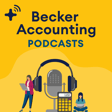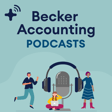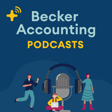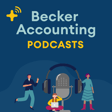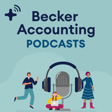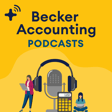
Cool Careers in Accounting Ep. 10 - From Deloitte CEO to WNBA Commissioner with Cathy Engelbert
Cathy Engelbert has a career that inspires. The first woman CEO of a Big 4 accounting firm and current Commissioner of the WNBA, she joins Becker National Instructor, Mike Potenza, to discuss her journey from CPA to international business leader. She shares the importance of mentorship and the challenges she has faced in leadership, emphasizing confidence, curiosity, and preparation in achieving success. Describing her efforts within the WNBA, she also gives valuable insight into her leadership philosophy, how to achieve your goals, and the balance of career and personal priorities.
Earn CPE by listening to this podcast through a Becker Prime CPE subscription.
Listen to this episode through your Becker LMS platform to complete practice questions, pass the final exam, and earn CPE credit.
Already a Becker Prime CPE customer? Login here.
Have access to Becker CPE through your employer? Earn CPE credit for this podcast however you consume Becker CPE, either through your company’s LMS or via the Becker platform. Not sure where to log in? Check with your CPE admin.
Learn more about CPE Podcasts from Becker: https://www.becker.com/cpe/becker-podcasts
